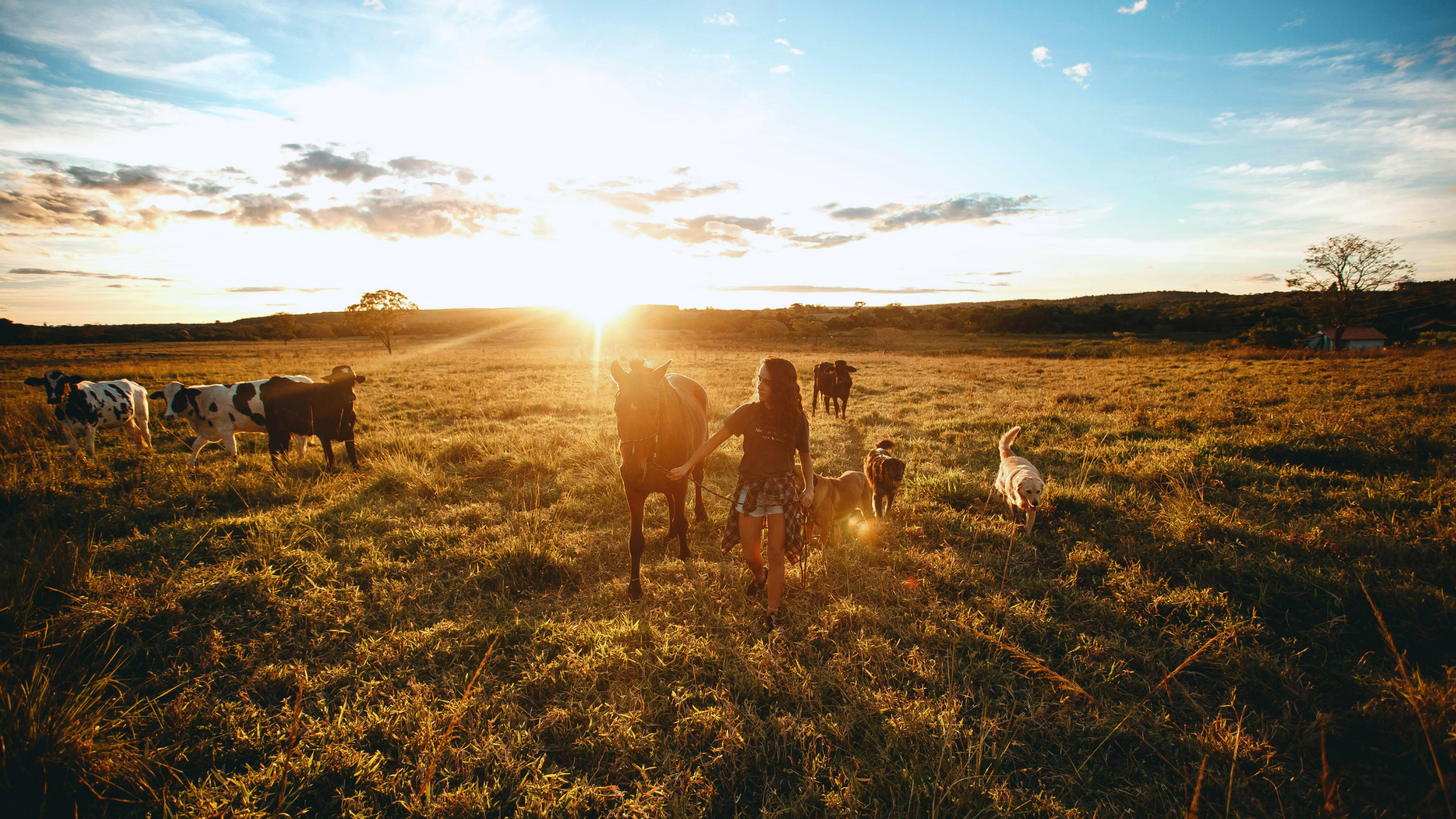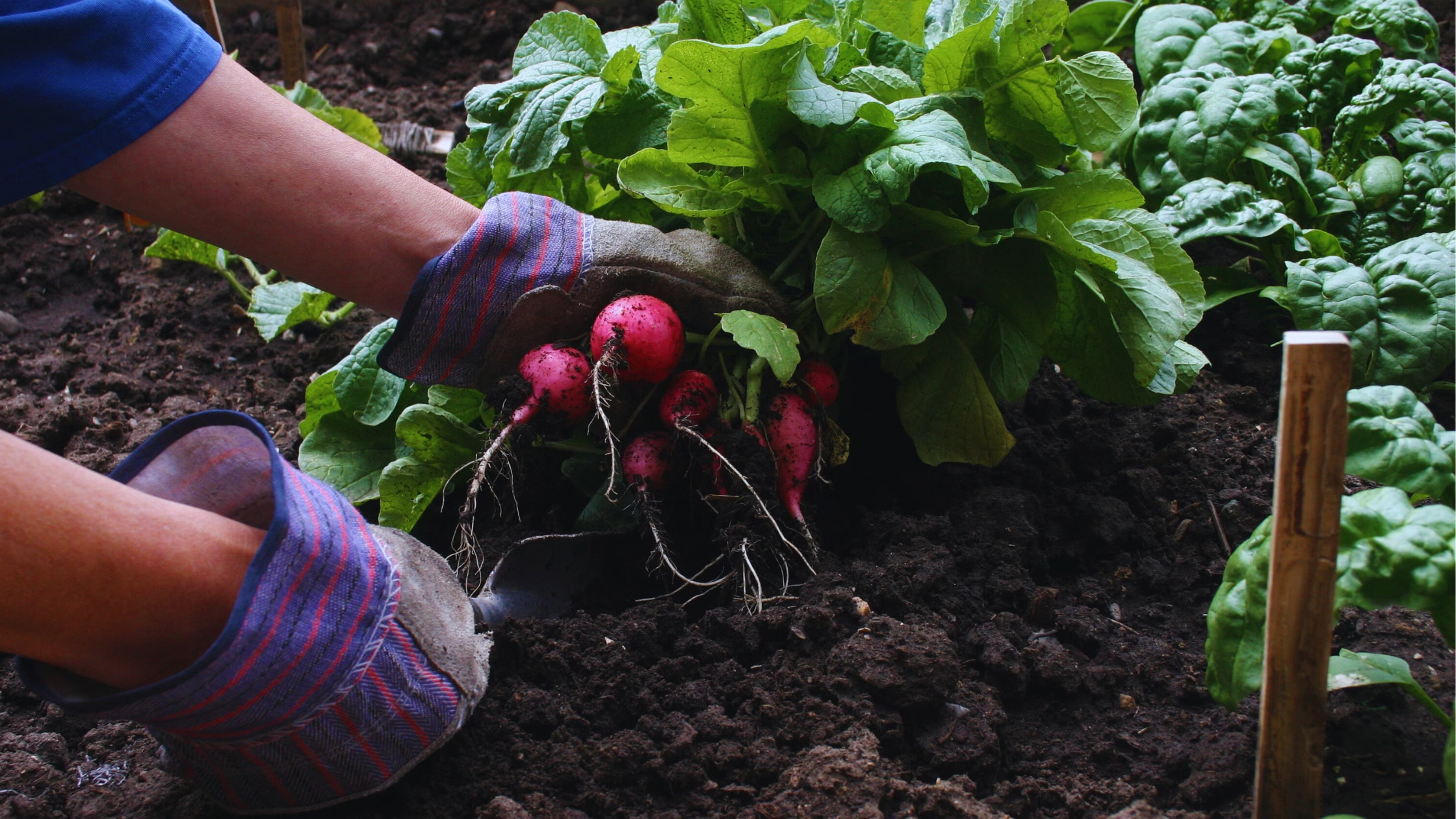With growing concerns about animal welfare, GMO produce, and the heavy use of pesticides, it’s becoming increasingly clear that sourcing food from local farms should be a serious consideration for your health. Not only does it support your community, but it’s a powerful way to take control of what you put on your table. Let’s take a look at the compelling reasons why the choice to support local farms is one of the best decisions you can make for your health, your environment, and the well-being of animals.
1. Animal Welfare and Ethical Farming Practices:
Many large-scale farms are notorious for the mishandling of animals, keeping them in cramped, unsanitary conditions, and feeding them substandard diets laced with antibiotics and hormones. Consuming products from animals raised without these additives helps reduce the intake of hormones and chemicals in your own diet, which can have long-term adverse effects on your health, such as hormone imbalances and antibiotic resistance. In contrast, local farms often treat their animals with greater care and respect. They provide animals with open spaces to roam, healthier, organic diets, and environments more aligned with their natural behaviors thus ensuring that the food you’re consuming isn’t contributing to animal suffering.
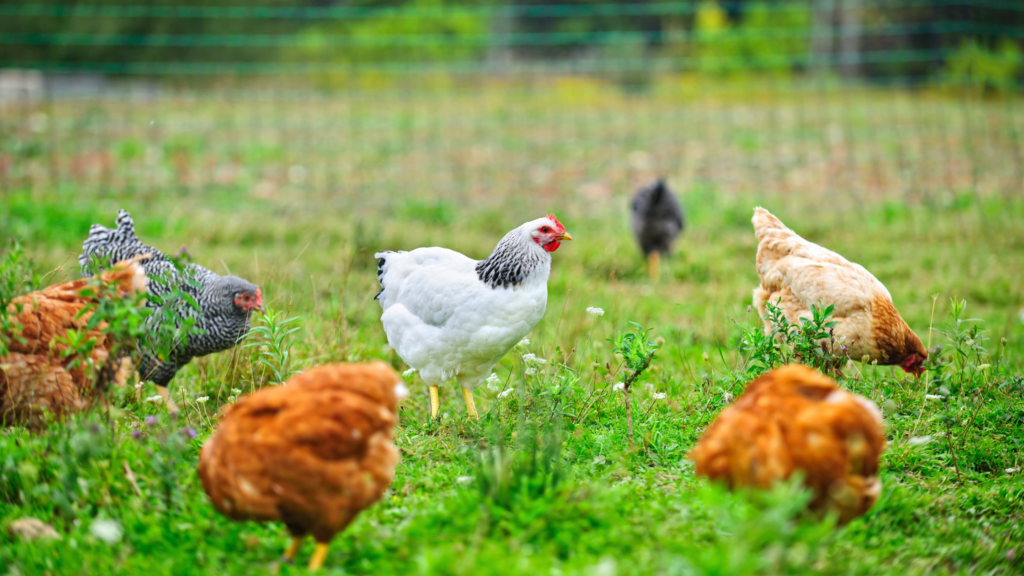
2. The Importance of Non-GMO, Pesticide-Free Produce
Between genetically modified organisms (GMOs) and pesticides, much of the produce found in grocery stores comes with health concerns. Local farms are often smaller and tend to avoid heavy pesticide use, focusing instead on organic, sustainable methods. They grow crops that are fresher, nutrient-rich, and free from harmful chemicals. By sourcing your produce from local farms, you reduce your exposure to potentially harmful substances, all while enjoying better-tasting, fresher produce.
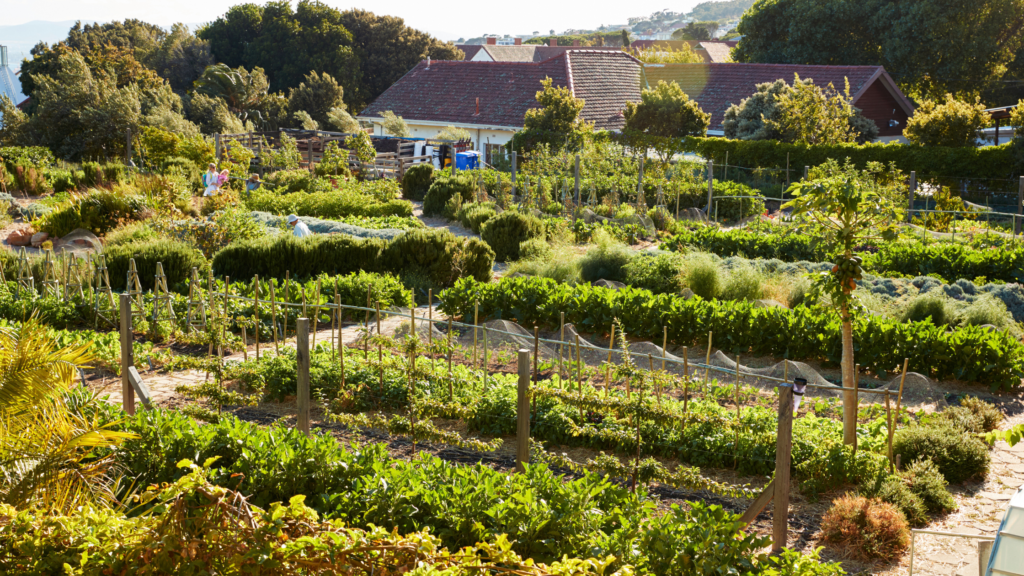
3. Reducing Your Carbon Footprint
Buying local means your food travels a shorter distance to get to your plate, cutting down on the environmental impact associated with transportation and packaging. Many large-scale farms rely on a global supply chain to transport their goods, adding to greenhouse gas emissions. Local farms, on the other hand, typically sell their products within a smaller radius, reducing the need for long-distance transport and the excessive packaging that comes with supermarket produce.
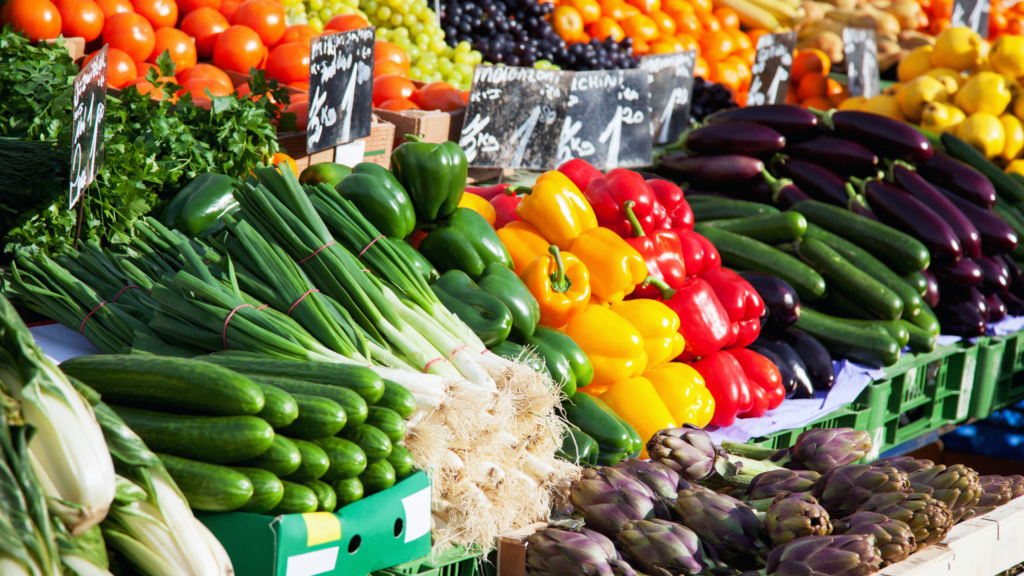
4. Freshness and Nutrient Density
When you purchase directly from local farms, you’re likely to receive food that was harvested or produced within a few days of consumption. Supermarket food, especially produce, often spends days or even weeks in transit, losing valuable nutrients along the way. The fresher the food, the higher its nutrient content, which means supporting local farms can directly contribute to better health. If you can’t always buy from local sources, consider purchasing some of your produce from the freezer section. Believe it or not, frozen fruits and vegetables are often fresher and more nutrient-dense. They are frozen immediately after harvest, preserving their vitamins and minerals without the need for harmful chemicals during transportation. Berries are a great example!
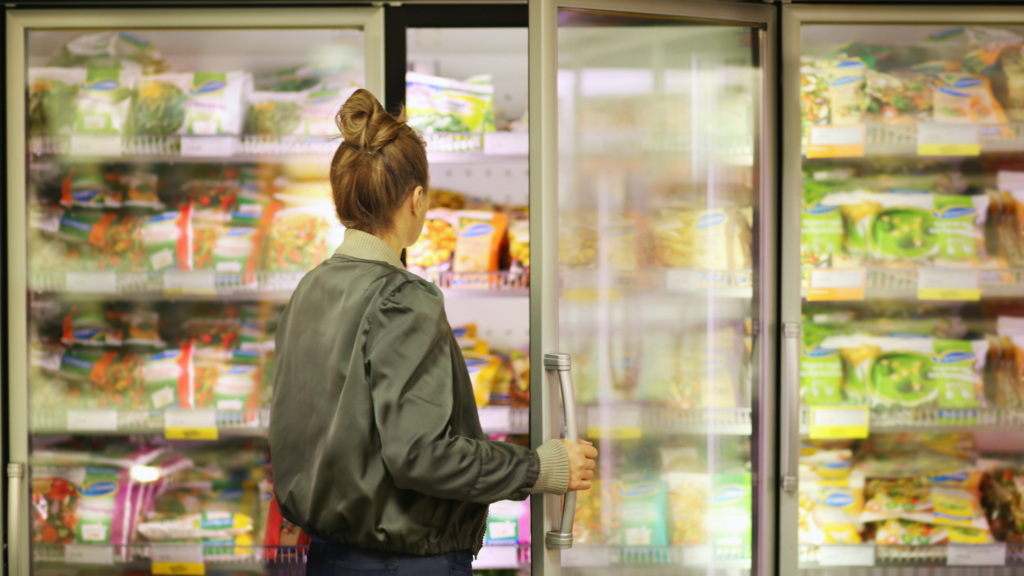
- Related Article: What and When to Buy Organic – is a good first step
5. Supporting Your Local Economy
In addition to the health benefits, buying from local farms also strengthens your community’s economy. When you purchase locally, you keep your money within your area, helping small farms thrive. This creates a ripple effect that supports other local businesses and even helps maintain green spaces. Successful farms are less likely to sell their land to developers.
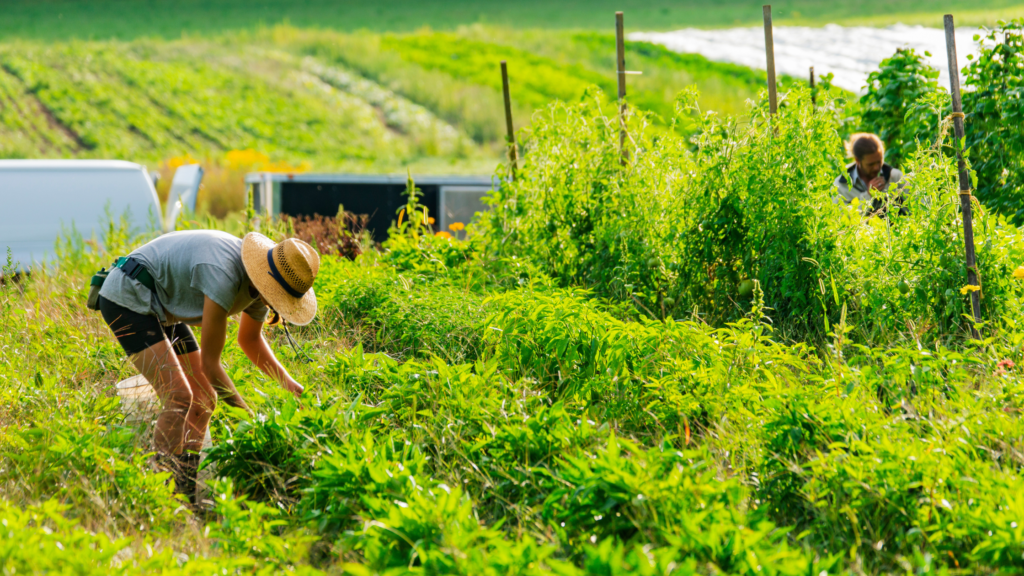
6. Starting Small: Eggs, Produce, and Meat
Start small by sourcing a few staple items, such as eggs, fruits, or vegetables. Eggs from local farms are typically fresher and richer in nutrients, as the chickens are often raised on pasture with access to more natural diets. Gradually, you can add more items like dairy and meat, allowing you to transition comfortably while discovering the superior quality and taste of locally sourced products.
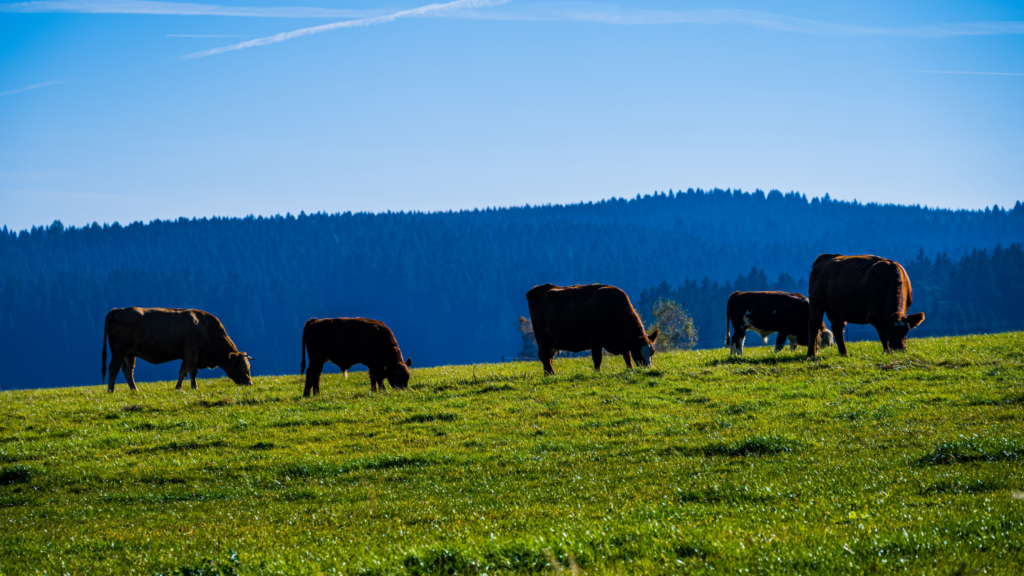
7. Building Relationships with Your Farmers
One of the unique benefits of buying from local farms is the opportunity to build relationships with the farmers themselves. You can ask them about their farming practices, learn more about the food you’re purchasing, and even get involved in community-supported agriculture (CSA) programs. CSA programs allow you to buy a share of the farm’s produce for the season. This not only guarantees you access to fresh, nutrient-dense food but also helps you eat seasonally. By eating what’s naturally in season, you benefit from produce at its peak flavor and nutritional value. Seasonal eating also supports your body’s natural rhythm, as foods grown at specific times of the year often match our health needs for that season—like hearty root vegetables in winter or hydrating fruits in summer. Overall, building this relationship creates a deeper connection to your food and the natural cycles of the earth.
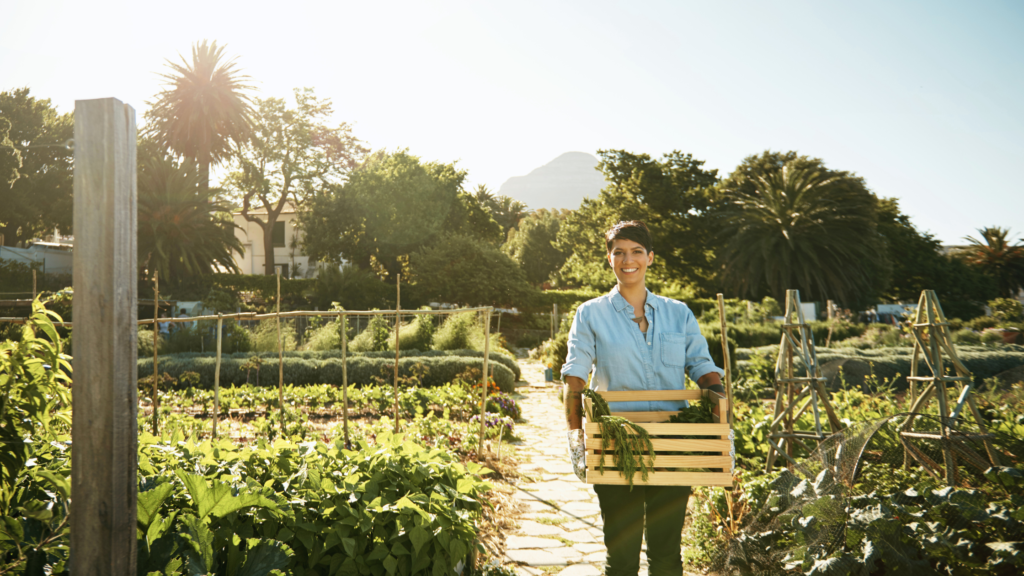
Not sure where to start? Here are several websites and resources to find local farms near you:
- LocalHarvest – This site allows users to search for local farms, farmers’ markets, CSA programs, and farm stands based on their location.
Website: www.localharvest.org - EatWild – Specializing in pasture-raised, grass-fed livestock, EatWild helps find farms that sell meat, eggs, and dairy products near them.
Website: www.eatwild.com - Farmers Market Coalition – This resource lists farmers’ markets by state and provides updates on seasonal events.
Website: www.farmersmarketcoalition.org - Seatopia – A platform for regenerative seafood, Seatopia sources sustainable, farm-raised seafood from carefully selected aquaculture farms. It promotes eco-friendly practices and offers direct-to-consumer delivery.Website: www.seatopia.com
In a world where our health and well-being are constantly impacted by the quality of our food and the treatment of animals, supporting local farms becomes more than just a choice—it’s a responsibility. By sourcing from local farmers, you not only take a stand for your health, but also for the humane treatment of animals and the nurturing of our environment. Every egg, vegetable, or piece of meat you buy from a local farm means you’re fueling your body with fewer chemicals, supporting regenerative agriculture, and ensuring that animals are raised with care and compassion. The ripple effect of this choice extends far beyond your kitchen—it’s a vote for better, healthier living and a more sustainable future.
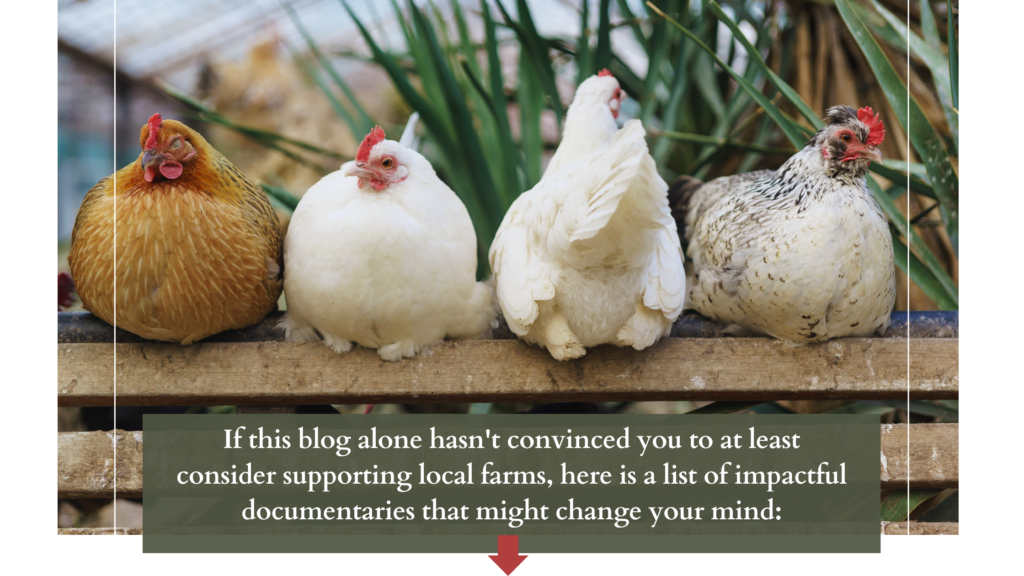
*all links clickable for more information
- Kiss the Ground – Focuses on regenerative farming and how soil health can help combat climate change.
- The Biggest Little Farm – A story about a couple who leaves the city to create a sustainable farm, highlighting the challenges and beauty of working with nature.
- Food, Inc. – An exposé on the industrialization of the food system, covering factory farming, animal welfare, and health concerns.
- Cowspiracy – Investigates the environmental impact of large-scale animal agriculture.
- Seaspiracy – Focuses on the environmental destruction caused by the global fishing industry, including issues of sustainability and mislabeling.
- Rotten – A Netflix series that explores corruption in the global food supply chain, including topics like honey production and the avocado trade.
- Soil – (Also known as “The Need to Grow”) – Highlights the importance of healthy soil and regenerative agriculture for future sustainability.
- Seatopia – Investigates sustainable and ethical fishing practices, spotlighting aquaculture and its impact on ocean ecosystems.
- Farmageddon – Documents the struggle of small family farms against government regulation and industrial farming practices.
- Sustainable – Explores the challenges facing America’s food system and the importance of sustainable farming practices for a healthier future.
So, whether you start small by picking up local produce from the farmers market or commit to buying your meat from ethically raised sources, remember that your choices matter. They matter for your body, for the animals, and for the planet we all share. x
